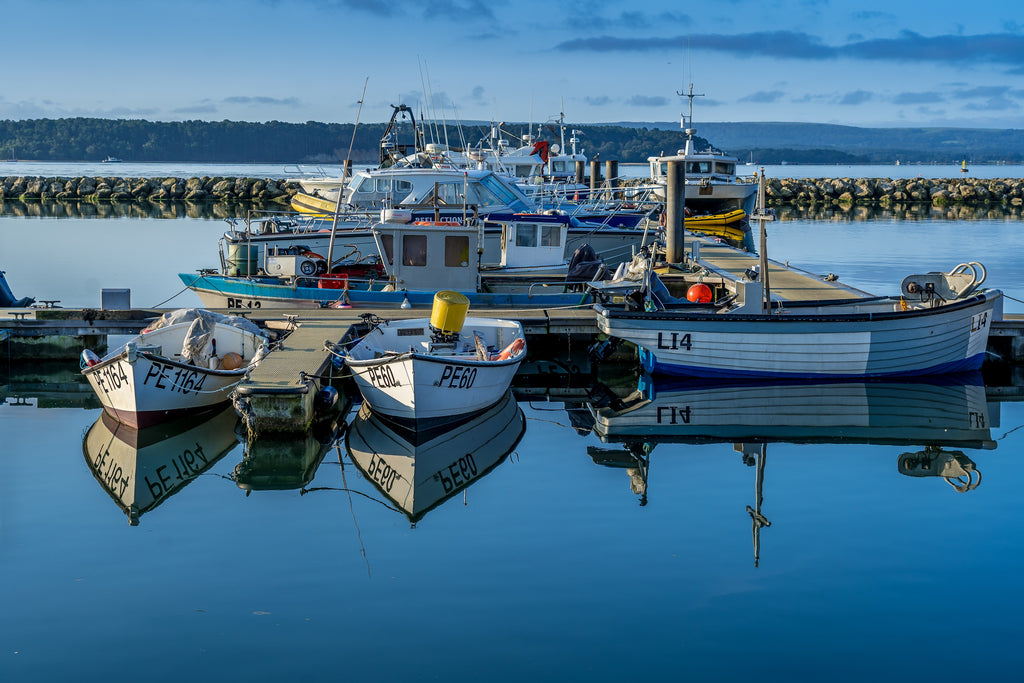Sustainable Fishing In Poole

BH Fish was established in March 2020 as a way to support Poole fishermen and encourage the Dorset community to cook locally caught seafood at home during the Coronavirus Lockdown. It brought together experienced local fishing business men, together with an established chef and experienced marketing man.
We delivered fresh fish to homes across the United Kingdom. Since lockdowns have discontinued and people return to a more normal routine, we are focusing on local BH delivery only.
Fish are caught in the wild using sustainable, low-impact fishing techniques, and our oysters, cockles, and clams are farmed in Poole Harbour, Dorset by MSC (Marine Stewardship Council) companies. We work with the fishing communities to deliver the very best seafood that doesn’t cost the earth or its seas.
Below is a bit about what’s happening in other parts of the world, using techniques we don’t support as the consequences are not sustainable and go against how the sea and fishing communities can live in harmony.
Overfishing is Emptying The Seas
Globally, our oceans are in a perilous state as a result of decades of irresponsible fishing methods. Many once-common species are now endangered, with numbers dropping to the point where there aren't enough to catch and sell. Over 90% of predatory species like cod and tuna have already been harvested, and 70% of fisheries are overfished, according to the UN.
Fish populations are declining faster than they can breed, resulting in significant changes to life in our oceans. The harsh reality is there aren't plenty more fish in the sea.
The fishing industry has advanced to the point where big ships use sonar and huge nets to target and catch a very large number of fish. These ships are also floating factories, equipped with processing and packing plants to expedite the processing and packing of their catch. All of this means that there is now the capacity to catch far more fish than there are currently available.
Other species are targeted and even renamed to make them more appealing as conventional species become extinct. The Patagonian toothfish, for example, was renamed Chilean seabass to make it seem more appealing. Fleets are also pushing into more remote locations such as the Arctic and Southern oceans, where they are ravaging fish species.
These ships' fishing practices are extremely damaging. Bottom and beam trawling use drag nets to catch flat fish like hake and sole from the seafloor. However, they shatter everything in their path, devastating fragile coral reefs in the process. Furthermore, lots fishing methods are indiscriminate, resulting in the accidental capture of many other species. Turtles, sharks, dolphins, and other fish are among the bycatch, which are frequently tossed back into the sea dead or dying.
There is also a human cost. Small-scale fishermen who use more traditional methods are suffering as a result of industrial fishing. Smaller boats in the UK are struggling to make ends meet, and communities in many fishing ports are suffering as a result. In the previous 20 years, the number of fishermen has likewise decreased by half. People who rely on fish for sustenance and income in other parts of the world are watching their stocks dwindle as foreign vessels trawl their waterways.
Our Sustainable Fishing Methods
When you buy our seafood from, you're helping to support sustainable fisheries that have been independently certified. Their sound management techniques help to ensure the health of fish stocks and habitats, as well as secure the livelihoods of local fishing communities to build a sustainable future.
You can enjoy your seafood knowing that tomorrow there will be plenty more where it came from.

